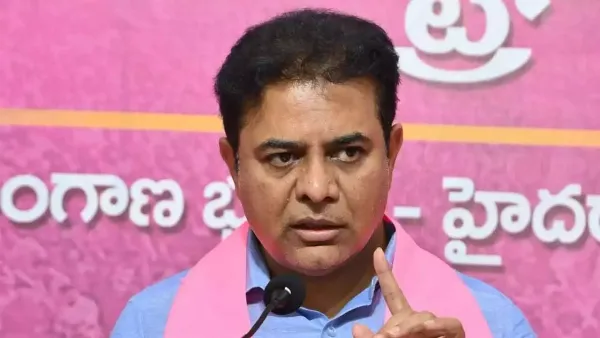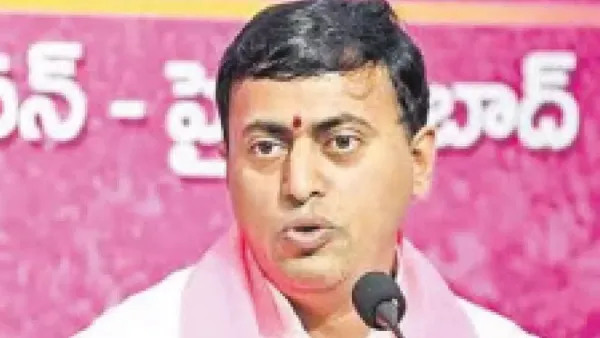The ongoing geopolitical turmoil triggered by US President Donald Trump’s trade war is opening up some of the best investment opportunities for private equity firm KKR & Co., just like Covid did, said co-chief executive Joseph Bae.
The New York-based firm is replicating its 2020 playbook, when it invested through the pandemic downturn, by announcing deals worth $8.5 billion in the last 10 days alone.
It has acquired companies as diverse as a German mid-tier technology company, a British healthcare property developer and a Swedish consumer-health specialist. That comes as several buyout rivals have slowed down dealmaking.
“When there’s less competition for assets because most people are nervous to deploy capital, valuations typically come down,” said Bae, the Korean American co-CEO of KKR, who might have been a concert pianist if he hadn’t joined the world of finance.
“Like what you've seen during Covid, during this period of volatility, you are going to see KKR leaning into the opportunity and making sure we capture and monetise the volatility in the marketplace,” he said.
With 70% of the Indian economy driven by domestic consumption, the country will remain “relatively insulated” from the tariff battles. KKR has deployed over $13 billion (of equity) since opening its India office in 2006 across 40 transactions, $2 billion of it in the last 12 months.
Along with Japan — where it trumped Bain Capital in a $4.4 billion bidding war for Fujisoft — India is one the two most important markets for the firm in the region.
“The political stability of this country has been a huge positive,” said Bae. “The pro-growth mindset around infrastructure investing has been a huge tailwind to growth in the country.” Gaurav Trehan, KKR’s co-head for Asia-Pacific region, said the India investment theme will evolve to encompass areas such as healthcare services, pharma, consumption, digitisation and the interplay with manufacturing and financial services. Long-term stability and clarity on government policy are key. “When there is no clear visibility, you’re going to see a hold or a pause in things that creates fundamental GDP growth,” Bae said. A former Goldman Sachs banker who joined KKR at 24, Bae rose from being an analyst in 1996 to leading the private equity firm’s push into Hong Kong and the rest of Asia in 2005 to take on TPG, Warburg Pincus and Carlyle. He became co-CEO alongside Scott Nuttall after cofounders Henry Kravis and George Roberts stepped down in October 2021.
From being a pioneer in leveraged buyouts, KKR is now an investment colossus in insurance, credit, infrastructure and real estate, in pursuit of its stated goal of $1 trillion of assets by 2030 from the current assets under management (AUM) of $638 billion.
The New York-based firm is replicating its 2020 playbook, when it invested through the pandemic downturn, by announcing deals worth $8.5 billion in the last 10 days alone.
It has acquired companies as diverse as a German mid-tier technology company, a British healthcare property developer and a Swedish consumer-health specialist. That comes as several buyout rivals have slowed down dealmaking.
“When there’s less competition for assets because most people are nervous to deploy capital, valuations typically come down,” said Bae, the Korean American co-CEO of KKR, who might have been a concert pianist if he hadn’t joined the world of finance.
“Like what you've seen during Covid, during this period of volatility, you are going to see KKR leaning into the opportunity and making sure we capture and monetise the volatility in the marketplace,” he said.
With 70% of the Indian economy driven by domestic consumption, the country will remain “relatively insulated” from the tariff battles. KKR has deployed over $13 billion (of equity) since opening its India office in 2006 across 40 transactions, $2 billion of it in the last 12 months.
Along with Japan — where it trumped Bain Capital in a $4.4 billion bidding war for Fujisoft — India is one the two most important markets for the firm in the region.
“The political stability of this country has been a huge positive,” said Bae. “The pro-growth mindset around infrastructure investing has been a huge tailwind to growth in the country.” Gaurav Trehan, KKR’s co-head for Asia-Pacific region, said the India investment theme will evolve to encompass areas such as healthcare services, pharma, consumption, digitisation and the interplay with manufacturing and financial services. Long-term stability and clarity on government policy are key. “When there is no clear visibility, you’re going to see a hold or a pause in things that creates fundamental GDP growth,” Bae said. A former Goldman Sachs banker who joined KKR at 24, Bae rose from being an analyst in 1996 to leading the private equity firm’s push into Hong Kong and the rest of Asia in 2005 to take on TPG, Warburg Pincus and Carlyle. He became co-CEO alongside Scott Nuttall after cofounders Henry Kravis and George Roberts stepped down in October 2021.
From being a pioneer in leveraged buyouts, KKR is now an investment colossus in insurance, credit, infrastructure and real estate, in pursuit of its stated goal of $1 trillion of assets by 2030 from the current assets under management (AUM) of $638 billion.








